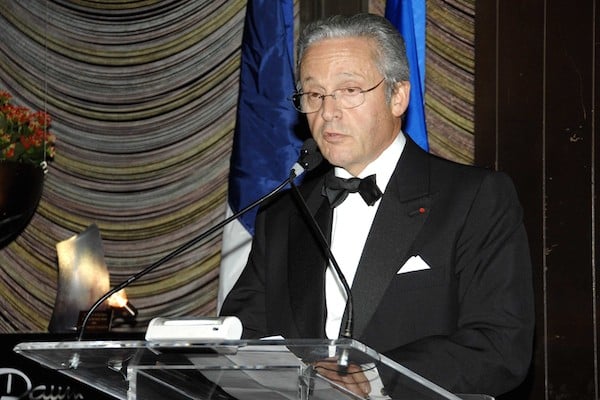
Photo: Courtesy of Ben Gabbe/PatrickMcMullan.com.
Versailles’ Court of Appeal will decide on Friday on the amount payable by Guy Wildenstein, the heir of the Wildenstein art-dealing dynasty charged with tax evasion. The caution (in French)—a sum payable before the verdict and retained if he is found guilty—could reach up to €75 million, “a record for a taxpayer,” commented a source quoted by AFP.
The New York–based president of Wildenstein & Co., is charged with having dodged French inheritance tax after the death of his father, Daniel Wildenstein, by channeling money into offshore funds located in Guernsey and the Cayman Islands.
The French Treasury notified the Wildenstein family of a €600 million tax adjustment in 2012. €250 million of it is directly linked to Guy Wildenstein, who contested the notification. Wildenstein’s sister-in-law Liouba, his nephew Alec Junior, and three family advisors are also being prosecuted in the case.
A €75 million Caution
Judge Guillaume Daïeff charged the art dealer in 2013 for tax evasion and laundering of tax evasion proceeds. He requested the €75 million caution to guarantee the payment of the avoided taxes and penalties in case of a conviction. Guy Wildenstein, who has already paid €500,000 to secure his presence in a potential trial, challenged the decision. The case went up to the Court of Cassation, which ruled in favor of the judge. It’s now up to the Court of Appeal in Versailles to finalize the amount due.
Guy Wildenstein also faces charges, filed in 2011, that he concealed 30 artworks reported missing by Jewish families in a vault of the Wildenstein Institute in Paris. artnet reported at the time that these include drawings by Edgar Degas and a painting by Berthe Morisot. According to the Wall Street Journal, the case is still pending.
In the late 1990s, historian Hector Feliciano claimed in his book The Lost Museum: The Nazi Conspiracy to Steal the World’s Greatest Works of Art that Guy’s grandfather, Georges, had collaborated with Nazi art dealer Karl Haberstock, who bought and sold artworks stolen from Jewish families. The family sued, but was unsuccessful as two courts ruled that the historian “had not acted irresponsibly or negligently by drawing that conclusion from records.”
Nathan Wildenstein
Wildenstein & Co. was founded in Paris in the 1870s by Nathan Wildenstein. He opened on Fifth Avenue in New York City in 1903, moving to a limestone townhouse on East 64th Street near Madison Avenue in 1931, to be closer to the great collectors of time Andrew Carnegie and Henry Clay Frick.
The Wall Street Journal reported that the East 64th Street headquarters were recently sold for an alleged $90 million to the government of Qatar, which plans to turn the building into a consulate.
Meanwhile, the company’s vice-president, Guy’s son David, is hoping to expand the business—now mainly focused on the secondary market of Old Masters—into modern and contemporary art as well as real estate. The Wildenstein’s non-profit activities, which include research and the publication of catalogues raisonnés, are also to be expanded.
David told the Journal that “his father’s legal troubles don’t involve him or the company.”